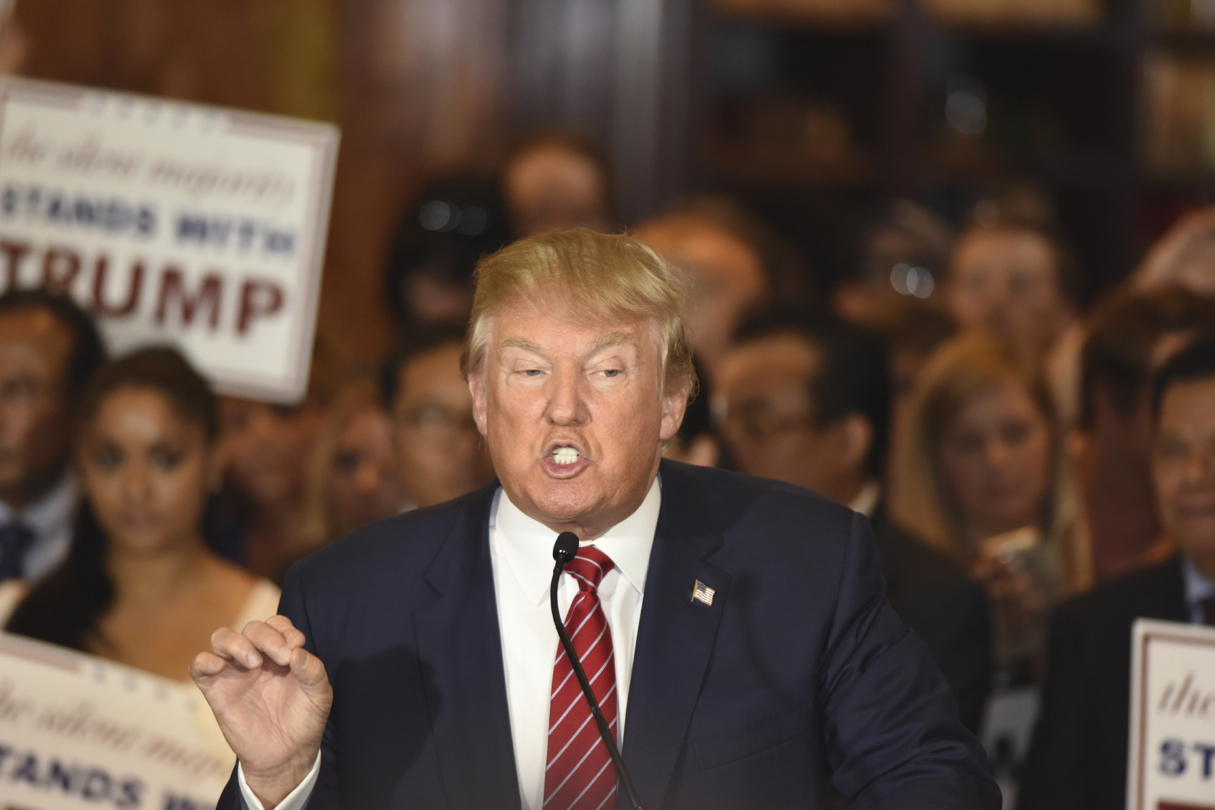A poll released Thursday suggests that Donald Trump will likely add Virginia to the growing tally of states he’s won en route to securing the Republican Party’s presidential nomination.
The poll, conducted by Monmouth University, finds that 41 percent of likely voters will support the real-estate developer in next Tuesday’s primary; that puts him 14 percentage points ahead of the nearest challenger, Senator Marco Rubio of Florida, who gets 27 percent support. Senator Ted Cruz of Texas nets just 14 percent support, while the other two candidates still in the GOP race, Ohio Governor John Kasich and retired neurosurgeon Ben Carson, each get 7 percent.
Perhaps more convincing than the raw numbers, though, is that the Monmouth poll’s results rebut the assumption that a winnowing GOP field will weaken Trump, who has won consecutive contests in New Hampshire, South Carolina, and Nevada since coming in second in the Iowa caucuses. The last major poll taken in Virginia, released February 16 by Christopher Newport University, put Trump in the lead with 28 percent to Rubio’s 22 percent and Cruz’s 19 percent, but also gave small shares of the vote to former Florida Governor Jeb Bush, who had not yet ended his campaign, as well as three candidates who dropped out while the survey was being taken—New Jersey Governor Chris Christie, former Hewlett-Packard CEO Carly Fiorina, and former Virginia Governor Jim Gilmore. Those four campaigns accounted for about 10 percent of the vote in the CNU poll.
“I am of the belief born out by the empirical data that Trump’s ceiling is related to his favorability,” Quentin Kidd, director of CNU’s Wason Center for Public Policy, tells Washingtonian. Trump’s favorability in CNU’s poll was 30 percent; in the Monmouth poll, which was conducted between Monday and Wednesday, he’s blown well past that.
Trump is likely to fare better in southern and interior Virginia than the DC suburbs, where a better-educated and higher-earning electorate is more geared toward an establishment-friendly candidate like Rubio or Kasich, who was recently seen in Fairfax talking about women who “left their kitchens” to support him. But among voters who have only a high-school education, Trump leads with 54 percent.
“Trump said he loves the poorly educated and apparently they love him back,” Monmouth polling director Patrick Murray says in a press release.
But in the parts of Virginia closest to Washington, the increasing likelihood of Trump winning the nomination continues to chill Republicans, especially when they consider the the impact his nomination could have general election.
“Under the current circumstances, absent a breakout performer by Cruz or Rubio, conservatives are battening down the hatches,” says Juleanna Glover, a longtime Republican operative and a senior staffer in the George W. Bush Administration. Glover was supporting Jeb Bush, but is now “thinking” about which remaining candidate to get behind.
“Northern Virginia is a swing-state area, and the ability for Republicans to win there with Trump at the top of the ticket will certainly be imperiled,” she says, explaining that an odious presidential nominee could hurt GOP candidates for lower offices.
In particular, Glover points out Representative Barbara Comstock—whose district includes all of Loudoun County and parts of Fairfax and Prince William—as someone who might not survive a Trump nomination, even if Rubio does well there next week.
“Let’s play this out,” Glover says, “Trump’s the nominee and Hillary goes with Tim Kaine, Virginia congressional candidates in even remotely purple districts will be eviscerated.”
With 49 delegates, Virginia is one of the more modest “Super Tuesday” prizes, but Trump could be approaching escape velocity at this point. If he does, Glover says she might bag the current presidential election and start planning for the next one.
“Let’s say Trump rolls to the Republican nomination,” she says. “I view that as an opportunity to think about 2020.”
The Monmouth poll is not nearly as dramatic on the Democratic side: 60 percent of likely voters in that party’s primary say they’re going for Hillary Clinton, with just 33 percent for Vermont Senator Bernie Sanders.



















